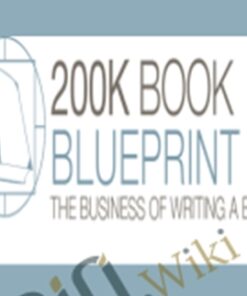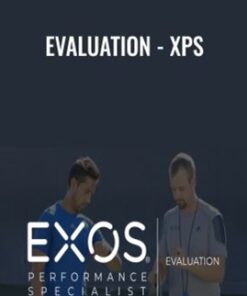-
×
 Loan SUPER Marketing Blueprint (King Khang - Wholesale to Million) - King Khang
1 × $224.00
Loan SUPER Marketing Blueprint (King Khang - Wholesale to Million) - King Khang
1 × $224.00 -
×
 10x Launches - Copy hacker - Ry Schwartz
1 × $92.00
10x Launches - Copy hacker - Ry Schwartz
1 × $92.00 -
×
 CBT Toolbox for Children and Adolescents
1 × $84.00
CBT Toolbox for Children and Adolescents
1 × $84.00 -
×
 Copywriting For Creatives - Ashlyn Carter
1 × $24.00
Copywriting For Creatives - Ashlyn Carter
1 × $24.00 -
×
 .Net for Beginners
1 × $33.00
.Net for Beginners
1 × $33.00 -
×
 10 Steps to Greater Confidence and Self-Esteem - Alexis Meads
1 × $42.00
10 Steps to Greater Confidence and Self-Esteem - Alexis Meads
1 × $42.00 -
×
 123 Manifest It - Marlenea Johnson
1 × $152.00
123 Manifest It - Marlenea Johnson
1 × $152.00 -
×
 Affiliate Millionaires 3.0 2017 – Greg Davis
1 × $139.00
Affiliate Millionaires 3.0 2017 – Greg Davis
1 × $139.00 -
×
 0-100k Case Study from Grant Ambrose
1 × $95.00
0-100k Case Study from Grant Ambrose
1 × $95.00 -
×
 1% Better Every Day Strength Building System - Ricky Lundell
1 × $32.00
1% Better Every Day Strength Building System - Ricky Lundell
1 × $32.00 -
×
 10 Ways to Make Money with Your Blog – John Sonmez
1 × $29.00
10 Ways to Make Money with Your Blog – John Sonmez
1 × $29.00 -
×
 10 Activities to Enhance Social-Emotional Literacy in the Classroom: Transform Student Behavior from Chaos to Calm - Lynne Kenney
2 × $19.00
10 Activities to Enhance Social-Emotional Literacy in the Classroom: Transform Student Behavior from Chaos to Calm - Lynne Kenney
2 × $19.00 -
×
 “Email Response Warrior + Email Inbox Warrior” – Jason Henderson
1 × $78.00
“Email Response Warrior + Email Inbox Warrior” – Jason Henderson
1 × $78.00 -
×
 Insight - The Principles of a Fulfilling & High-Performance Life
1 × $95.00
Insight - The Principles of a Fulfilling & High-Performance Life
1 × $95.00 -
×
 $200k Book Blueprint Training – Richelle Shaw
1 × $96.00
$200k Book Blueprint Training – Richelle Shaw
1 × $96.00 -
×
 2018 Geriatric Conference - Steven Atkinson
1 × $85.00
2018 Geriatric Conference - Steven Atkinson
1 × $85.00 -
×
 100 Ways to Stay Motivated
1 × $202.00
100 Ways to Stay Motivated
1 × $202.00 -
×
 Legal Risks for Nurses: Protect Yourself from the Courtroom! - Rachel Cartwright-Vanzant
1 × $44.00
Legal Risks for Nurses: Protect Yourself from the Courtroom! - Rachel Cartwright-Vanzant
1 × $44.00 -
×
 3-Day: Vestibular Rehabilitation Intensive Training Course - Jamie Miner
1 × $244.00
3-Day: Vestibular Rehabilitation Intensive Training Course - Jamie Miner
1 × $244.00 -
×
 4X Cash Compounder
1 × $30.00
4X Cash Compounder
1 × $30.00 -
×
 Evaluation - XPS
1 × $45.00
Evaluation - XPS
1 × $45.00 -
×
 Florence Lin's Complete Book of Chinese Noodles, Dumplings and Breads
1 × $33.00
Florence Lin's Complete Book of Chinese Noodles, Dumplings and Breads
1 × $33.00
You may be interested in…
-
Add
 Code 2 Conversions - Chris Rocheleau
Code 2 Conversions - Chris Rocheleau
$2,295.00Original price was: $2,295.00.$135.00Current price is: $135.00. -
Add
 Dan On Demand - Dan Lok
Dan On Demand - Dan Lok
$1,576.00Original price was: $1,576.00.$202.00Current price is: $202.00. -
Add
 [BIG Collection Real Estate] Real Estate Web Academy – Great Real Estate Giveaway
[BIG Collection Real Estate] Real Estate Web Academy – Great Real Estate Giveaway
$999.00Original price was: $999.00.$88.00Current price is: $88.00. -
Add
 Albert Aiello – LLC’s To Protect Business Owners
Albert Aiello – LLC’s To Protect Business Owners
$695.00Original price was: $695.00.$82.00Current price is: $82.00. -
Add
 6 Weeks Of Email Income Experts - Jason Capital
6 Weeks Of Email Income Experts - Jason Capital
$1,500.00Original price was: $1,500.00.$152.00Current price is: $152.00.
![Courses[GB]](https://coursesgb.biz/wp-content/uploads/2024/03/CoursesGB-Logo-40px.png)
![Could Early Intervention Reverse Symptoms of Autism? An In-Depth Look at Current Sensory, Communication, Relationship, & Behavioral Treatments CC - Susan Hamre » Courses[GB] Awaiting product image](https://coursesgb.biz/wp-content/uploads/woocommerce-placeholder-510x510.png)
 Purchase this course you will earn
Purchase this course you will earn